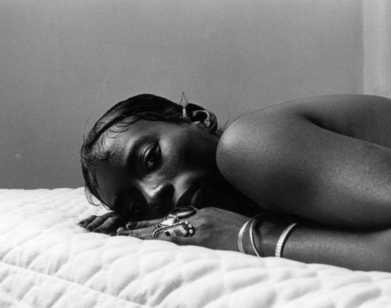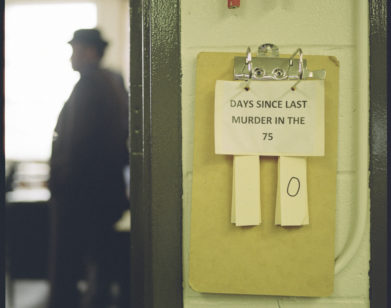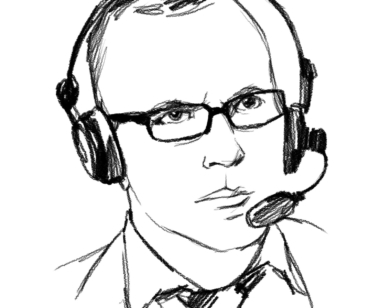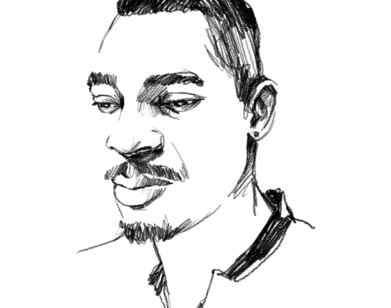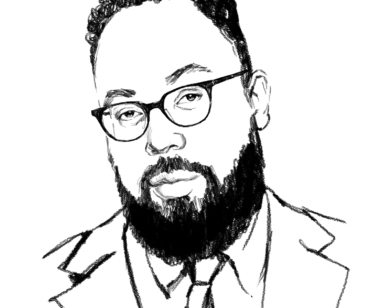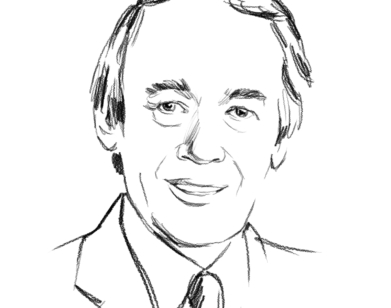ask a sane person
The Squad Is Expanding, and Jemele Hill Loves to See It
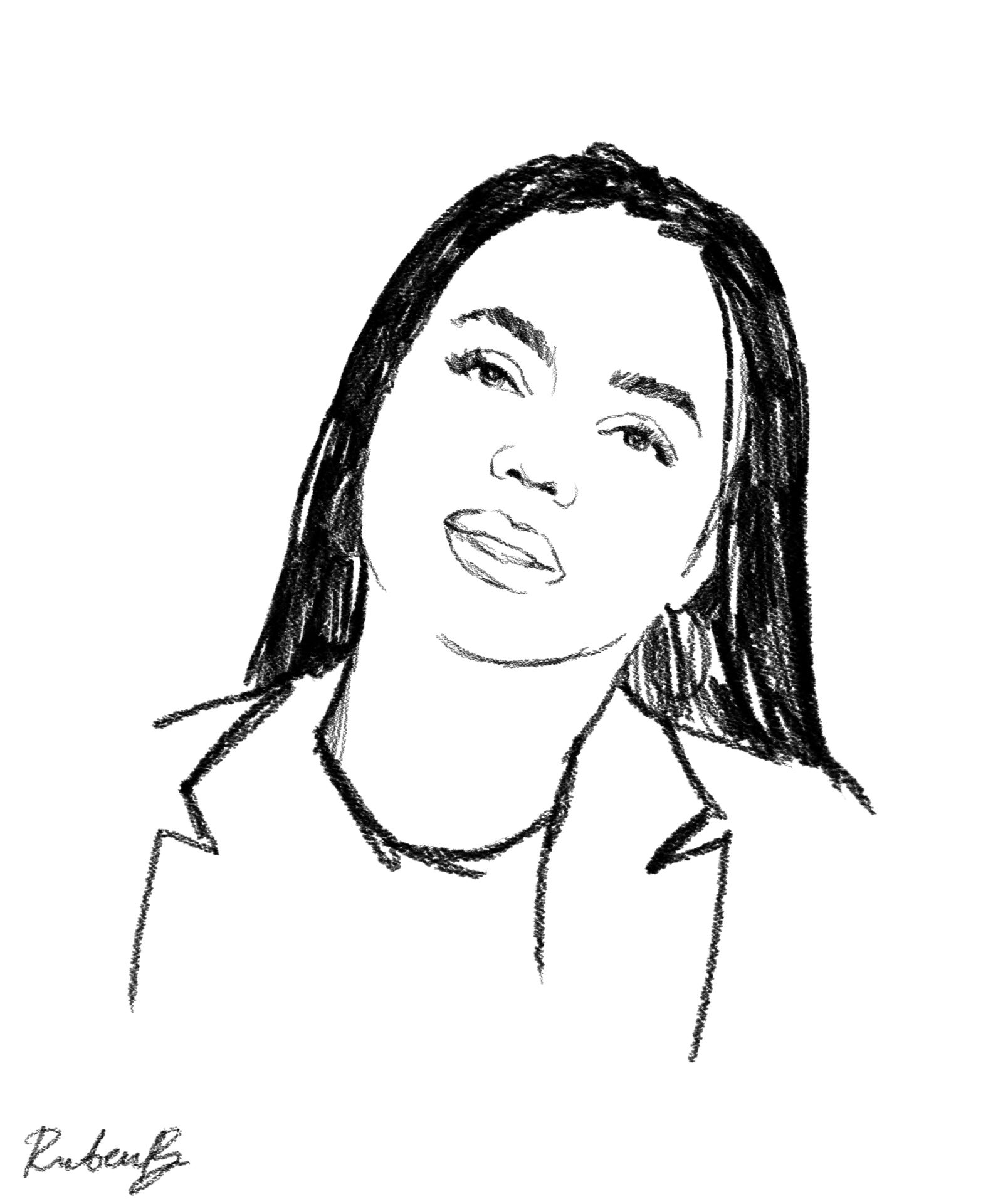
You may know Jemele Hill from her many years on ESPN, both critiquing jump shots and covering Colin Kaepernick kneeling during the National Anthem. You may know her for her outspoken critiques of Donald Trump on Twitter for her 1.3 million followers. You may also know her from her work in The Atlantic, where she writes mostly about sports, power, and Black lives, or her podcast, Jemele Hill is Unbothered. And now, she’s hosting a weekly TV show for Vice TV alongside her fellow ESPN alum Cari Champion. The point is, Hill is everywhere, often talking about things before some are ready to hear them. So it only made sense to talk to her about what where we’re at, and where we’re going.
———
JACOB UITTI: Where are you and how long have you been isolating?
JEMELE HILL: I’m in Los Angeles, where I live. I’m at my house and I’ve pretty much been in isolation since about mid-March. I’m trying to remember when the last day was that California was fully open. It was a Sunday, for sure. I’ve been pretty much in isolation since then.
UITTI: What has the pandemic confirmed or reinforced about your view of society?
HILL: Well, I definitely think it’s reinforced the fact that we do need face-to-face human connection. I think that a lot of people, especially as technology began to speed up and we became more distant, we kind of started to lose our appreciation for human contact and gathering and friendships and a lot of the things that we really took for granted. I think the pandemic has reinforced that that need for physical connection still is there. Like a lot of people, I took it for granted that we could just meet up for brunch. That we could just go on vacation, or go here and go there. Now that the bulk of that stuff has been taken away, it’s like, dang, I kind of miss my friends! It’s especially stark for me because I’m coming up on my first wedding anniversary. This time last year, I was preparing for a wedding, and it was such a great time with the people I love and who are close to me in my life. I don’t know when I’m going to see most of the people who were at my wedding next.
Given the overall state of our political landscape, this being an election year, I think it’s confirmed how much we’re really lacking in leadership. Being in this pandemic where we really need guidance and a certain tone to be set for the country, you see the failings. So, at the end of the day, when this story of how America handled the pandemic gets written, we will have lost to it. Not because we were incapable, and not because we didn’t have the medical expertise. We will have lost to it out of sheer ignorance and a lack of will power and respect for one another. That’s going to be a sad indictment about who we are as Americans.
UITTI: What has this pandemic altered about your view of society?
HILL: Well, it definitely has crystalized further just how quickly misinformation can be spouted as truth and fact. As journalists, we are more keenly aware of the damage that misinformation does. But because people now in this pandemic are spending even more time online and on social media, you see how information has been weaponized against us. It’s very easy on social media to manipulate people’s emotions, to manipulate their belief systems. It’s been very eye-opening to witness it in real time. Because of the pandemic, we have to rely more on information through our systems, both traditional and non-traditional. Because of that, we are vulnerable to staying in a state of misinformation all the time.
UITTI: What is the worst-case scenario for the future?
HILL: One of the things that might be keeping us going during the pandemic is living under this assumption that we will return to “normal.” That it will go back to the way that it used to be and things will, you know, gradually return to what we all know and what we’re comfortable with. But I don’t think that’s going to happen. I get sad sometimes when I think about how just the most basic joyous things that we used to do are so much more complicated now. Going on vacation is much more complicated now. Even something as simple as getting together with friends. I don’t know when the next time I’m going to be able to go to a concert and feel comfortable and safe will be. Going to the movies might be dead forever. At some point you might be saying, “Hey remember when we used to go to the movies?” and “Remember what a movie theater was like?” It seems overly dramatic, but I think it’s probably true. There are a lot of traditions that were uniquely part of our culture that will now no longer exist. That part makes me really, really sad.
UITTI: Conversely, what good can come out of the lockdown? Are there reasons to hope?
HILL: I think the ingenuity of people has definitely been something that has been very inspiring. I think we’ve all figured out how we can be leaner in all of our operations. Frankly, we have gotten, I think, the maximum thrust of the technology that we use. We’ve always used it frequently, but we maybe didn’t use it as diligently and as deeply as we do right now. You’re seeing people in real-time come up with some really innovative systems and innovative ways to do things while we’re not so dependent on some of the traditional ways we used to do things. It’s forced us out of our comfort zones, and I think that’s a good thing. It’s forced us to reimagine the way many of us do business—especially in my business, media. It’s certainly changed the way that I’m accustomed to doing my podcast, for example. One of the things that I used to hang my hat on is that every single interview that I did was face-to-face. I’d never done a phone interview because I felt like in face-to-face interaction, you really get the best of people, and people can sense the conversation taking place. But, I must admit, doing them remotely has been just as rewarding, if not more rewarding. It’s allowed me to not only conduct interviews still at a high level, but it’s also allowed me to get some people on the show that I don’t know I would have been able to get if it wasn’t a pandemic. For podcasters, this is a really revolutionary time. I wouldn’t dare say people have more free time on their hands, necessarily, but I think people have more stationary time. And because of the stationary time, the podcast listenership has been really strong and very committed. People are looking for breaks. They are looking for connection. And one thing that I think podcasting does is that it allows you to build an intimate connection with the audience.
UITTI: What has your daily routine been like?
HILL: My day changes completely every day. Days are a lot longer in the pandemic because I have so many more meetings now. On top of that, I’m also doing a weekly television show. Typically, on days where we have to tape the show, because we do it in-studio, I’m out of the house at 5am. We tape for four or five hours. I have a post-production meeting. I come back home and I usually have some more meetings in the afternoon. But then on days when I tape my podcast, it’s completely different. I don’t have to be out of the house, necessarily, but I probably have to be on a call at about 7:30 in the morning. Then maybe get some breakfast, do a podcast interview, tape some more things. Typically, I can always count on an appearance on CNN or MSNBC thrown in there somewhere, if not some other media obligations. I have a production company, so I have pitch meetings during the week all the time. Every day is just, like, a continuous, endless stream of Zoom calls. By the way, I’m also revising and finishing the manuscript for my memoir, so I have to dedicate about two hours a day to doing that. Many days I go into my office at 7:30 and I don’t come out until 6 or 7pm.
UITTI: Do you think there is hope for true racial equality in the United States? If so, what do you think is the first step toward that goal?
HILL: It’s possible. There’s a difference between possible and likely, right? It’s certainly possible because we have shown in various periods in our history that we are, at least temporarily, capable of some kind of racial reconciliation. Racism has never been outright gone in the history of this nation, but I think we’ve had moments where everybody has been really fed up with its presence. It’s in those moments when we show the best of what we’re made of. A significant problem that we have in this country is that you can’t really solve any problem where everybody disagrees about the extent of the problem. There is a decided interest, particularly under this administration, to prove that the problem is not as pervasive, that it is not as seeped into our institutions, as it actually is. Much of this is built around this completely inflated idea of American Exceptionalism. “We’re too good to be racist!” And because we have built our legacy on an air of moral superiority compared to other countries, it has allowed us to live in the comfort zone of thinking that we are still much better off than we actually are when it comes to racial healing. As long as there are factions of people actively making sure that we never fully confront the problem, then we’re going to struggle with this. It’s going to be the original sin that we never atone for. No problem in the history of humankind has ever gotten solved by evading it. The fact that there are people here who think they are smart enough to outrun the legacy of racism is both frustrating and, in a weird way, amusing. They don’t recognize that the very definition of insanity is doing the same thing over and over and watching it not work.
UITTI: Do you ever feel angry at the state of things? If so, how do you personally channel it? Is anger ever a useful emotion?
HILL: I think it was the great James Baldwin that said, “To be Black in America is to be in a constant state of rage.” And while I don’t walk around raging at people, there is always, not far from the surface, this bubbling sense of rage that I have because I see not just the levels of injustice, but a combination of injustice, fear-mongering, ignorance, and a completely incompetent leadership. Given all of those things, it doesn’t take much for me to be set off about it. But the part where I channel my energy in is certainly into my work, into telling stories that, hopefully, enlighten, inspire, and get us to see the humanity in one another. That’s one way to do it. And another way is through actionable items, things within my small sphere of influence that I can actually do something about. Obviously, we’re in an election year, so voting is at the top of every American’s mind, or should be! My husband and I volunteered to be poll workers. That’s one small way that we’re doing more than just casting our vote.
UITTI: Which young leaders of the moment inspire you?
HILL: “Young” is an interesting word. Automatically there’s this temptation to list somebody maybe under 18 or under 21, but I’m going to directly focus this answer on looking at what’s happening in the House of Representatives, because I think there is an emerging pocket of nontraditional leadership that is emerging there that gives me hope that the stupid people have not won. I look at people like Cori Bush, who is the presumed representative out of St. Louis, and she is single mother, somebody who protested in Ferguson in 2014 after Michael Brown was killed. She’s been homeless. She’s a nurse. She hasn’t lived the life of an average American, in many respects. And to see her in this position to influence policy, given what her experiences are, that’s very comforting—to know that there’s somebody there who has been through many of these challenges. We, unfortunately, have a lot of politicians who have not. And they vote that way. They propose things based off that lack of being able to be in touch with their own constituents and the problems they’re facing. I look at Jamaal Bowman, another presumed Representative that will be coming out of New York. While not particularly young in terms of age, he’s not a career politician. He was a middle school principal. Very down to earth guy. I feel bad for him because he’s a Knicks fan. [Laughs] But he is somebody that represents this new wave of leadership that was created by the presence of Ilhan Omar and Alexandria Ocasio-Cortez and Ayanna Pressley. The Squad is expanding! Seeing its expansion is very gratifying because it lets me know that there are people in pockets of this country who really get it.

